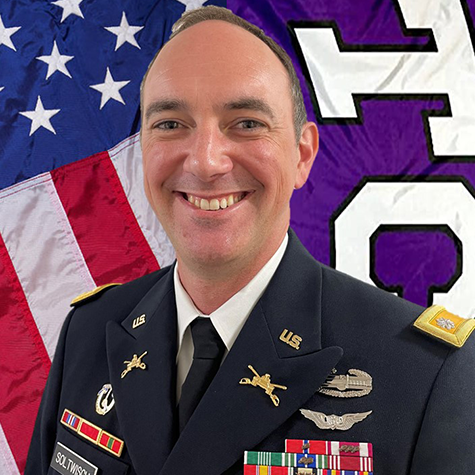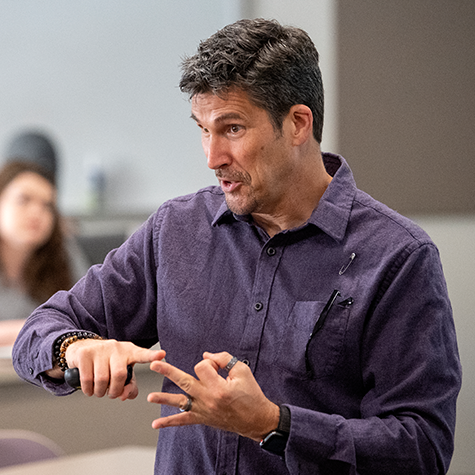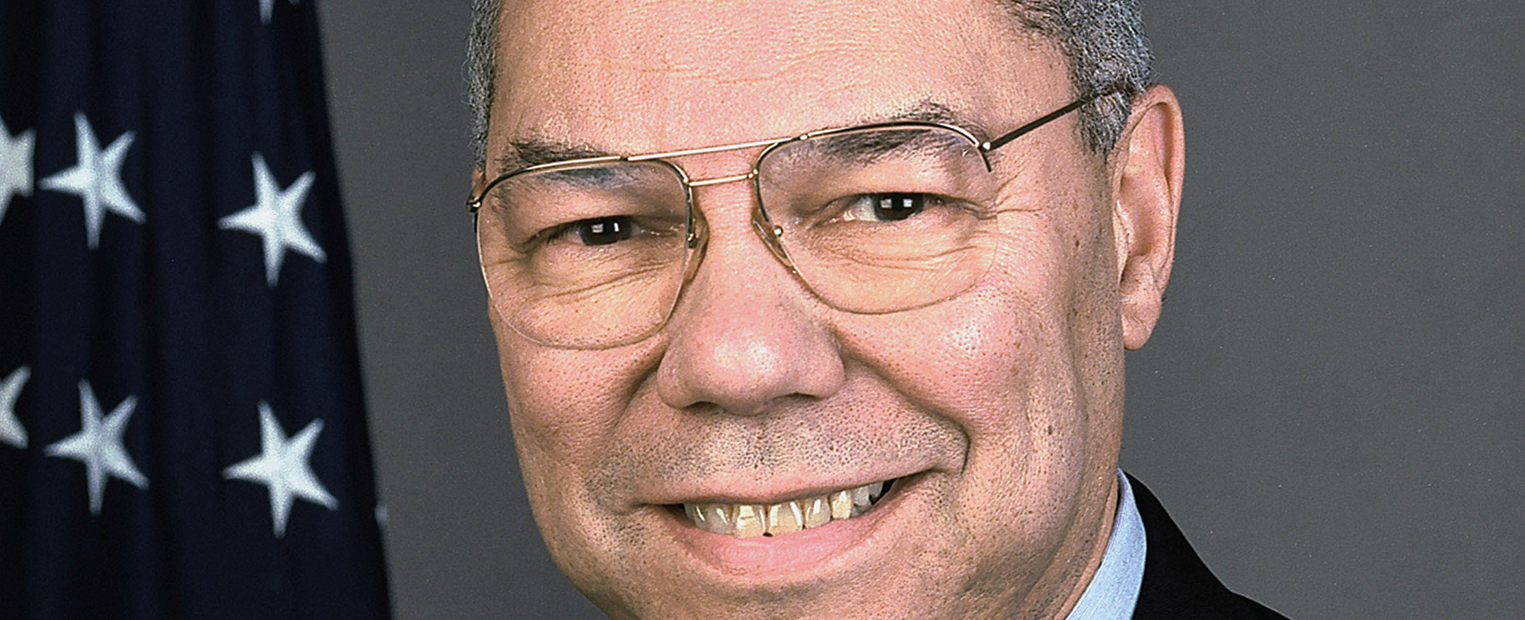To say that during his lifetime Colin Powell was accomplished is a gross understatement. The child of Jamaican immigrants, Powell rose to the highest positions in the American military and diplomatic communities. As both chairman of the Joint Chiefs of Staff and Secretary of State, Powell was the first Black man to inhabit those roles.
His path to the top of those positions were not direct. Powell was the first person to lead the armed forces having received his Army commission from the ROTC, not West Point. Before becoming President George W. Bush’s Secretary of State, Powell was discussed as a presidential candidate, but refused to run for the White House.
As he is remembered, we asked two AddRan faculty members with perspectives on Powell’s military and diplomatic careers to give their thoughts on his legacy.

Powell the Soldier
Army ROTC Professor Lt. Col. Brandon Soltwisch, US Army
Q: Colin Powell was the first chairman of the Joint Chiefs of Staff to enter the Army through ROTC. How does that tradition inform current ROTC cadets and discussions about what they hope to achieve while in the service?
Lt. Col. Soltwisch: There is no question that General Powell’s example of achievement has made an indelible impact on the way Army ROTC officers have viewed their opportunities in the Army ever since he achieved the position of Chairman of the Joint Chiefs of Staff.
When contemplating his legacy, one must consider that Army ROTC commissions several thousand Second Lieutenants into the active duty Army service every year – that’s over 65% of all officers annually, with the rest coming from the United States Military Academy (West Point), Officer Candidate School and through direct commissioning programs.
When you consider that scale it is easy to see why the impact of his example is so profound. That’s thousands of young people, from every state, of every color, ethnicity, and religion, rich and poor, entering into one of the country’s great meritocracies where even a humble first-generation American kid from the Bronx can rise to the top. Colin Powell keeps the American Dream alive for a new set of ROTC graduates every year.
Q: What is Powell’s legacy as it relates to his time in the Army? What can current and future generations of officers and enlisted personnel learn from his example?
Lt. Col. Soltwisch: General Powell’s legacy is absolutely intact inside the United States Army. He is one of the most well-respected and revered leaders, among many well-respected and revered leaders, inside an organization that prides itself on developing great leaders.
I remember vividly as a 5th grader watching the news coverage of General Powell during the Gulf War and he was larger than life. As I enlisted, and ultimately became an officer, I looked to his example and came across his 13 Rules of Leadership which have been a cornerstone of who I have become as a leader ever since.
His calm demeanor, eternal optimism, exacting standards, vision, and reputation as a truly great person are well known, and his example of kindness is something that we could all use a little more of today.

Powell the Diplomat
Herman Brown Chair and Professor James Scott, Ph.D.
Q: Much has been made of the “Powell Doctrine” since Colin Powell’s death. What is the “Powell Doctrine” and how has it influenced American foreign policy?
Dr. Scott: Building on ideas first articulated in 1984 by President Reagan’s first secretary of Defense, Casper Weinberger, Powell articulated what became known as the “Powell Doctrine” in the months leading up to the 1991 Gulf War. A response to the experiences of Korea and, especially, Vietnam, the Powell Doctrine posed 8 questions that required clear, positive answers prior to military action by the US:
- Is a vital national security interest threatened?
- Do we have a clear attainable objective?
- Have the risks and costs been fully and frankly analyzed?
- Have all other non-violent policy means been fully exhausted?
- Is there a plausible exit strategy to avoid endless entanglement?
- Have the consequences of our action been fully considered?
- Is the action supported by the American people?
- Do we have genuine broad international support?
The purpose of these questions was to ensure a clear understanding of the stakes, purposes, role, and limits of the use force before resort to that foreign policy option, and to improve the likelihood of the effective use of force when it was the chosen course of action. As Chairmen of the Joint Chiefs, Powell’s perspective influenced US strategy and actions in the 1991 Gulf War, and US policies in the first year of the Clinton administration as it sought to develop a new “assertive multilateralism” strategy to use force to address problems in countries such as Somalia, Rwanda, Bosnia, and elsewhere.
Its basic principles have proven influential in many policy discussions and deliberations over the three decades since he articulated it.
Q: What is Colin Powell’s legacy on American foreign policy? What should students of foreign policy understand about Colin Powell?
Dr. Scott: His legacy is one of firsts: first Black national security adviser (for President Reagan), first Black Chairman of the Joint Chiefs of Staff, first Black Secretary of State (for President George W. Bush). As national security adviser for President Reagan, Powell played a central role in the restructuring and restoration of a functioning and effective national security council system in the wake of the Iran-Contra affair, and as the Chairman of the Joint Chiefs of Staff, he helped to develop the centrality of that position for military advice, planning and operations in the wake of the Goldwater-Nichols reform legislation (1986). Indeed, he was a central figure in the planning and decision-making for the 1991 Gulf War.
Powell’s experiences in Vietnam and the years after led him to caution in the use of military force. This was the case as a general serving in the Reagan, Bush and Clinton administrations, and it is reflected in the threshold established by the 8-question Powell Doctrine, as well as Powell’s advice on the 1991 Gulf War, the conflicts facing the US in several countries during the first year of the Clinton administration, and during his time as Secretary of State for George W. Bush (2001-2005).
Indeed, despite the unpopularity of the viewpoint within the Bush advisory team, Powell urged caution, diplomacy, sanctions, and the exhaustion of non-military options leading up to the 2003 Iraq invasion, though he eventually took the administration’s tenuous case to the United Nations in a now-famous appearance that Powell engaged in reluctantly, and for which he soon came to express great regret.
